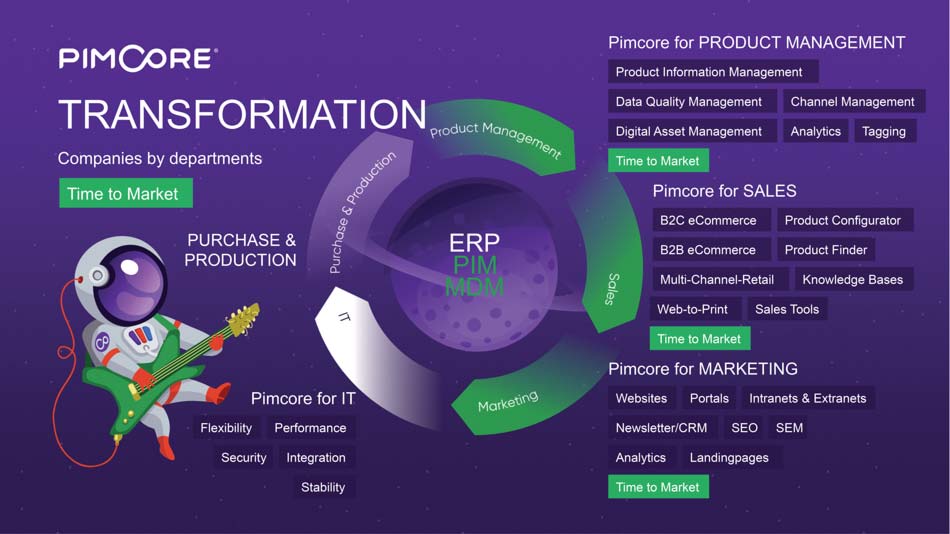10 Signs You Need Services
(Product Information Management)
A single source of truth for all your product and other data.
To increase sales through cross-selling, upselling, and personalisation. A centralised PIM system can help you unlock the value of your product data by providing a unified view of your product information, enabling you to identify cross-selling and upselling opportunities, and personalise your marketing campaigns and product recommendations.

Here are a common 10 signs that you would benefit from having a PIM system:
- You have a large and complex product catalogue that is difficult to manage with spreadsheets and other manual methods.
As your business grows and your product offerings expand, it becomes increasingly challenging to manage your product information with traditional manual methods like spreadsheets. A PIM system can help you centralise and automate the management of your product data, making it easier to handle a large and complex product catalogue.
- Your product data is scattered across different systems and departments, making it hard to get a unified view of your product information.
When your product data is scattered across different systems and departments, it becomes difficult to get a unified view of your product information. This can result in inconsistencies and inaccuracies that can have negative impacts on your business. A PIM system can help you centralise and manage all of your product data in one place, providing you with a single source of truth for your product information.
- Your product data is incomplete, inconsistent, or inaccurate, leading to errors and inefficiencies in your business processes.
Incomplete, inconsistent, or inaccurate product data can cause errors and inefficiencies in your business processes, which can lead to delays, customer complaints, and lost sales. A PIM system can help you improve the quality and accuracy of your product data by providing tools for data cleansing, normalisation, and enrichment.
- Your product information is not up-to-date or timely, causing delays in your go-to-market strategy.
If your product information is not up-to-date or timely, it can cause delays in your go-to-market strategy, which can have negative impacts on your business performance. A PIM system can help you manage your product information more efficiently, ensuring that it is always up-to-date and timely.
- You are struggling to keep up with the demands of your customers, who expect detailed and accurate product information across all channels.
Customers today expect detailed and accurate product information across all channels, including websites, mobile apps, social media, and offline stores. If you are struggling to keep up with these demands, a PIM system can help you manage your product data more effectively, ensuring that your customers have access to the information they need to make informed purchasing decisions.
- You are expanding into new markets or selling through new channels, which requires you to adapt your product information to different languages, currencies, and regulatory requirements.
Expanding into new markets or selling through new channels often requires you to adapt your product information to different languages, currencies, and regulatory requirements. A PIM system can help you manage these complexities by providing tools for localisation, currency conversion, and compliance.
- Your suppliers and partners are not providing you with reliable product information, causing delays and errors in your supply chain.
If your suppliers and partners are not providing you with reliable product information, it can cause delays and errors in your supply chain, which can have negative impacts on your business performance. A PIM system can help you manage your relationships with suppliers and partners by providing a centralised platform for data exchange and collaboration.
- You are spending too much time and money on manual data entry, verification, and enrichment tasks, which could be automated with a PIM system.
Manual data entry, verification, and enrichment tasks can be time-consuming and costly, taking valuable resources away from other important business tasks. A PIM system can help you automate these tasks, freeing up time and resources for more strategic initiatives.
- You are not able to leverage the full potential of your product data, such as cross-selling, upselling, and personalisation, due to the lack of a centralised PIM system.
If you are not able to leverage the full potential of your product data, you may be missing out on opportunities
- You want to improve your overall product data quality, consistency, and accuracy, which will have a positive impact on your business performance and customer satisfaction.
The last point is crucial as it highlights the overarching goal of implementing a PIM system - improving the overall quality, consistency, and accuracy of your product data. This is important because accurate and consistent product information is crucial to meeting customer expectations, driving sales, and improving business performance. A PIM system can help you achieve this goal by providing a centralised platform for managing all your product data, ensuring that your product information is always up-to-date, accurate, and consistent across all channels. By improving the quality of your product data, you can enhance customer satisfaction, reduce returns, and increase sales. Additionally, having accurate and consistent product data can also help you make better business decisions and improve operational efficiency.
Pimcore PIM/MDM is a comprehensive product information management (PIM) and master data management (MDM) system that helps businesses to centralise, manage, and optimise their product data. Check our Pimcore products overview.
Pimcore is a comprehensive platform that offers a wide range of features for managing product data, including:
Data Management
Pimcore allows businesses to centralise and manage all product data in one place. It offers tools for data cleansing, normalisation, and enrichment, as well as advanced workflows and approval processes.
Data Integration
Pimcore can integrate with a wide range of systems and platforms, including ERPs, CRMs, and eCommerce platforms. It can also import and export data in various formats, making it easy to integrate with other systems.
Digital Asset Management
Pimcore offers a complete digital asset management solution, allowing businesses to manage images, videos, and other digital assets alongside their product data.
Localisation and Multichannel Management
Pimcore supports localisation and multichannel management, making it easy to manage product data for different languages, currencies, and channels.
Customisation and Extensibility
Pimcore is highly customisable and extensible, allowing businesses to adapt the system to their specific needs and requirements.
Contact Us Today for a Free Consultation and Demo!
Unlock the Full Potential of Pimcore with Stimulus.
Discover the power of Pimcore with Stimulus. Our team of experienced Pimcore developers and consultants offer award-winning, open-source solutions for managing digital experiences. With our Pimcore development and consulting services, we help businesses harness the full potential of Pimcore's data management, content management, asset management, and e-commerce capabilities to deliver engaging digital experiences across multiple channels.
Let's Talk Book a demoProducts of the Pimcore Platform™
Pimcore products are individually outstanding, in combination just awesome. The choice is yours.
Pimcore Platform™ Overview
Pimcore is an Open Source digital platform that aggregates, enriches, and manages enterprise data and provides up-to-date, consistent, and personalised experiences to customers. It provides a centralised solution for PIM, MDM, DAM, CDP, DXP/CMS, and digital commerce.Find out more
Product Information Management (PIM)
Tell a consistent product story across all channels. Manage, aggregate and distribute product data. Consolidate all product information to one source of truth.
Find out moreMaster Data Management (MDM)
Drive 360° engagement by providing the right data on the right channel. Aggregate and maintain single, harmonised, up-to-date versions of any corporate master data.
Find out moreDigital Asset Management (DAM)
Empower brand and marketing content, product images, videos and documents. Manage, consolidate, share and transform digital media assets. Build product image library.
Find out moreCustomer Data Platform (CDP)
CDP is a packaged software that collects and cleans customer data from various sources and combines to create a single customer profile. This is a powerful tool that helps to present the structured data for marketing, administration and management.
Find out moreDXP / CMS / Template Engine
Template Engine plugin for Pimcore Content Management System (CMS) is a tool which allows your marketing department rapidly create new pages or customise existing pages content and layout without specific knowledge of HTML or CSS.
Find out moreDigital Commerce / Ecommerce
Website Shop is an e-commerce plugin for Pimcore. Pimcore digital commerce platform solves the challenges of complex digital transformation by creating a highly personalised customer experience with exceptional scalability.
Find out more650.000+
Products Stored in our Solutions
Regions
Servicing Australasia, Asia & Europe

SILVER PARTNER
18+
Years On the Market
